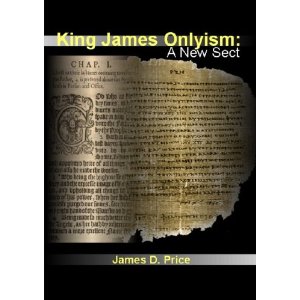The recent tomb controversy serves as a reminder of how much skepticism the Christian church has endured. The fact that God has spoken, and has done so reliably confounds non-believers. They’ve tried so many different angles to suppress this truth and hide the fact they are responsible to His Holy Word.
In 1778, H.S. Reimarus argued Jesus was a Jewish zealot failing to set up his Messianic kingdom. To help keep the cause alive, the disciples stole his body and fabricated stories about the resurrection. In 1835, David Strauss published an influential book entitled, The Life of Jesus. He presented a work seeking to discredit the reliability and historicity of the gospels. The historical accounts of Jesus were myths. One couldn’t trust the Bible to present any accurate information about Jesus. In 1901, William Wrede published The Messianic Secret. Wrede posited Mark added fictitious material of Jesus being the Messiah. In 1906 Albert Schweitzer released: The Quest of the Historical Jesus. His work concludes, “…[I]t is not Jesus as historically known, but Jesus as spiritually arisen within men who is significant for our time and can help it.” So much for the historical records.
And of course there was the onslaught of form criticism. These critics argued the oral tradition containing the historical facts about Jesus suffered considerable corruption. By the time it was written down, the Gospel accounts were nowhere near being historical truth. The early church was so devious, they couldn’t be trusted to give an accurate account of the life of Jesus. They even mixed in stories and elements from non-Christian ancient literature. They controlled the facts and put forth what they wanted to. The form critics, bowing at the alter of Rationalism, defined miracles out of existence.
And of course, lets not leave out the supposed suppressed evidence about Jesus. Facts and tidbits from spurious later non-biblical gnostic material somehow or other present the bigger picture of the true Jesus. These later apocryphal traditions rejected by the early church find their place front and center for such modern works like The Lost Years of Jesus. Jesus spends 17 years in India, even though the gospel accounts ask, “Isn’t this the carpenter’s son?” Shouldn’t they be asking, “Isn’t this the mystic from India?” And it gets sillier and sillier. Morton Smith from Columbia University explained Jesus was a magician. He used illusion and hypnosis to leave his mark on history. Perhaps the most bizarre was the hypothesis of John Allegro, the Semitic scholar who wrote The Sacred Mushroom and the Cross. Jesus wasn’t a real historical person, but was rather a code name for a hallucinogenic mushroom. The men who wrote the New Testament were the ancestors of the New Age hippies, working out cryptograms for an ancient fertility cult. Then in the early 1980’s the world was given Holy Blood, Holy Grail. The book argues Jesus married Mary Magdalene and had 6 kids. Years later the same fiction made millions being retold in the Da Vinci Code.
Like dominos falling, all these arguments, spanning hundreds of years have failed. They differ in hypothesis, and many with each other, proving they can’t make sense of the evidence they are evaluating. Now we’re going to get a chance again to tune to the Discovery Channel (home of such notable epics as “The Search for Bigfoot”) to see the same futile efforts. Scholars, philosophers, and historians failed to conquer Jesus and keep Him buried; now filmmakers will be shooting their cap guns at God. At the heart of this new documentary is a worldview positing a denial of sola scriptura. The latest tomb controversy is simply another attempt to run from the fact that God has spoken. Rather than being scared by this new documentary, I look forward once again to watching God and His Word prove its reliability and authority. The Psalmist said, “Your word, O Lord is eternal; it stands firm in the heavens.” Imagine, filmmakers versus God. Now, if there was ever an unfair fight, this is it.
Alpha and Omega Ministries is a Christian apologetics organization based in Phoenix, Arizona. James White, director, is a professor, having taught Greek, Systematic Theology, and various topics in the field of apologetics for numerous schools.




